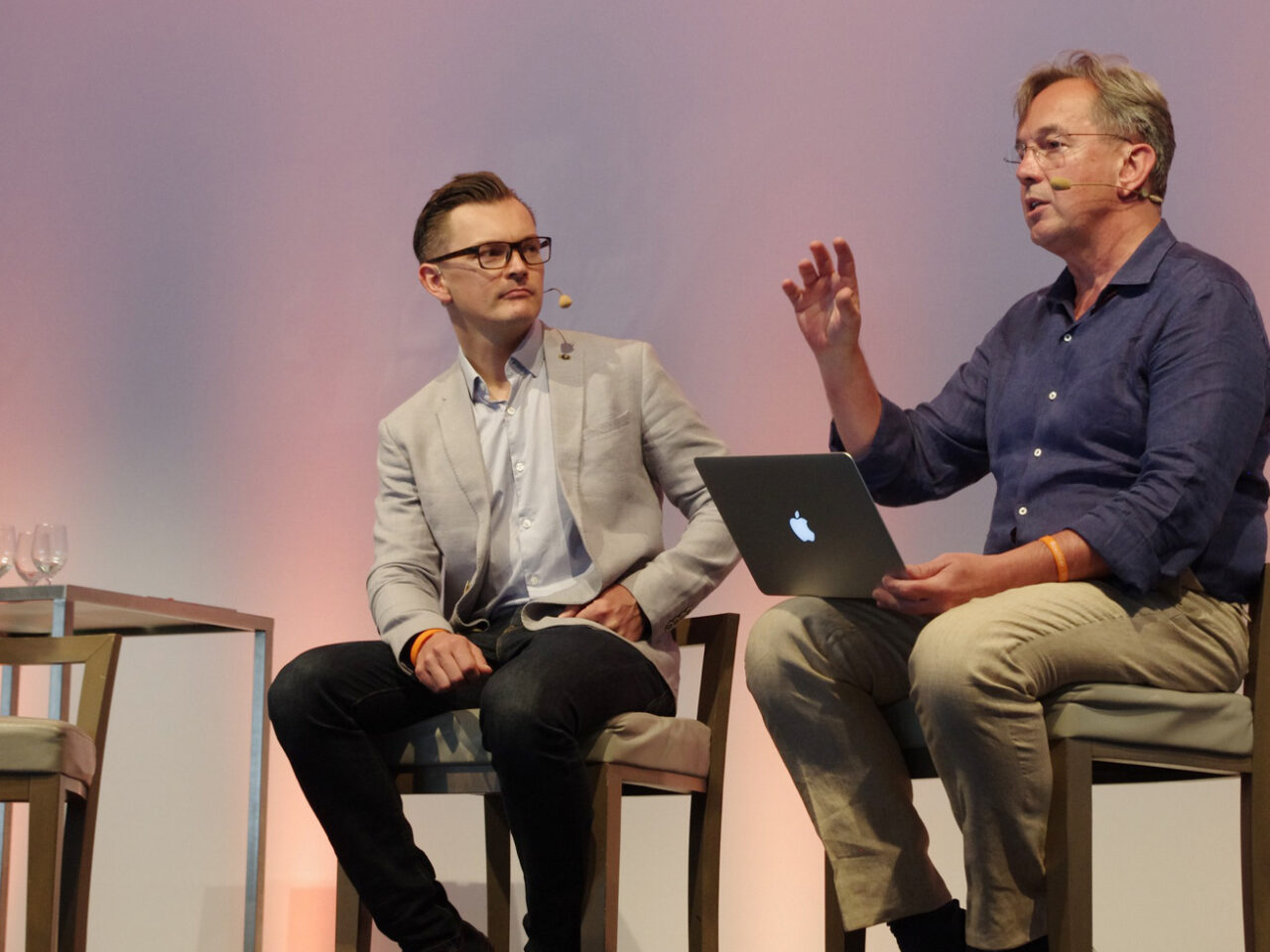
Insights | October 17, 2019
Sustainable success – long-term impact and making a difference
A longer perspective, and realizing that success in not a zero sum-game are key when aiming for longtime prosperity in a broader sense. Also, keeping yourself in somewhat good physical shape helps you staying alert. We asked two accomplished scientists and speakers about their definition of sustainable success and how to achieve it.
Executive coach and Aalto Executive Education Senior Advisor Ben Nothnagel and scientist and professional speaker James Hewitt of Hintsa Performance have similar thoughts on the subject, but from slightly different perspectives. Where Nothnagel focuses more on ways of thinking and self-awareness to stay on top of things, Hewitt views modern work as a “cognitive endurance activity” as he explores how we can perform more sustainably.
Hewitt divides the definition of sustainable success into two parts and emphasizes the long-time perspective.
“Sustainable means something that goes on for an extended amount of time, rather than peaking and then waning. For success to be sustainable, it has to have a longer time horizon.”
As for success, in terms of work, he finds the concept of success to be quite personal, and increasingly so, because there is an increased sentiment of personal responsibility among younger generations, towards more purpose- and value-driven ways of thinking.
“I think we need to start thinking of success more in terms of impact, and sustainable success is about making a difference. Ideally, sustainable success is about making a difference that goes beyond ourselves. The only real success is sustainable success – is short time success really success at all?”
A broader perspective
Fundamentally, sustainable success is about finding ways where we can move beyond thinking about the outcome as being a zero sum game, instead finding ways for it to be a win-win for all parties.
“In my view, health, wellbeing and performance are actually complimentary at a personal level, a professional level, and in an organization. Supporting people’s health and wellbeing can facilitate greater performance as a by-product,” says Hewitt.
He is keen to remind us that sustainable success doesn’t mean performing on the same level all the time. “This is a mistake we can easily make. Sustainable success does not mean that you are “always on”. Rather, the road to sustained success is characterized by periods of intensity and periods of recovery. It’s about the trend towards growth and having the impact that you are hoping for, in the long-term, resulting in greater good beyond yourself as well,” he concludes.
“I agree with James, ability and motivation will be undermined if you have not achieved wellbeing,” says Nothnagel. “From a slightly more psychological point of view, we could define sustainable success as the ability and motivation to continue to have certain behavior that benefits you. When the ability is not paired with motivation, sustainability drops.”
Nothnagel reminds us that striving for personal success in certain ways won’t always contribute to a “Strong Together” way to achieve sustainable success.
“The basis of sustainable success in a fast moving competitive world remains individuals that are resilient and have behavior that supports a workplace climate conducive to high performance. Some individuals may limit the sustainable success of firms if their quest for individual success limits the performance of others.”
Perfection is a myth
It is important that we don’t conflate ideas of sustainable success with perfection.
“It is easy to believe we’ll achieve success only if we achieve perfection, and often among very high-performing and talented people, there is a tendency towards perfectionism,” says Hewitt, and continues:
“I like the idea of asking what is sufficient. This is recognizing that we are not robots, we are humans, and that actually just doing your best consistently will be characterized by ups and downs. Some days, doing your best will mean getting stuck and realizing that you need to rest before being able to continue – and also realizing that that doesn’t mean you are lazy or weak.”
Timing – effort – impact
James Hewitt:
“Knowledge work is an endurance activity. To be able to perform at a high level sustainably, recognize when to push and when to pull back, the way a professional cyclist analyzes the race and determines if this is the time to push and take the lead, or if it may be better to wait. Focus on applying effort in the right place and at the right time. Work hard and recover harder. Find a rhythm that suits you. It may not always be possible, but being aware of your optimum rhythm can help you to make better choices about when it’s worth pushing into the red, and when you need to prioritize recovery.”
See – evaluate – respond
Ben Nothnagel:
“Wellbeing, both emotional and physical, is a strategic benefit. Emotional intelligence is the ability to articulate yourself even when you are affected by emotion. Emotional intelligence leads to resilience and optimism. Everyone is responsible for their own reactions to different situations. Ask yourself, should I be stressed, angry, irritated or hurt? Asking the question gives you resilience because you are aware. Be respectful of yourself and others by analyzing your feelings and reactions, and remember: You decide your behaviour.”
Ben Nothnagel and James Hewitt held keynote speeches at Roschier’s Firm Conference in September 2019 and sat down for an interview shortly thereafter.